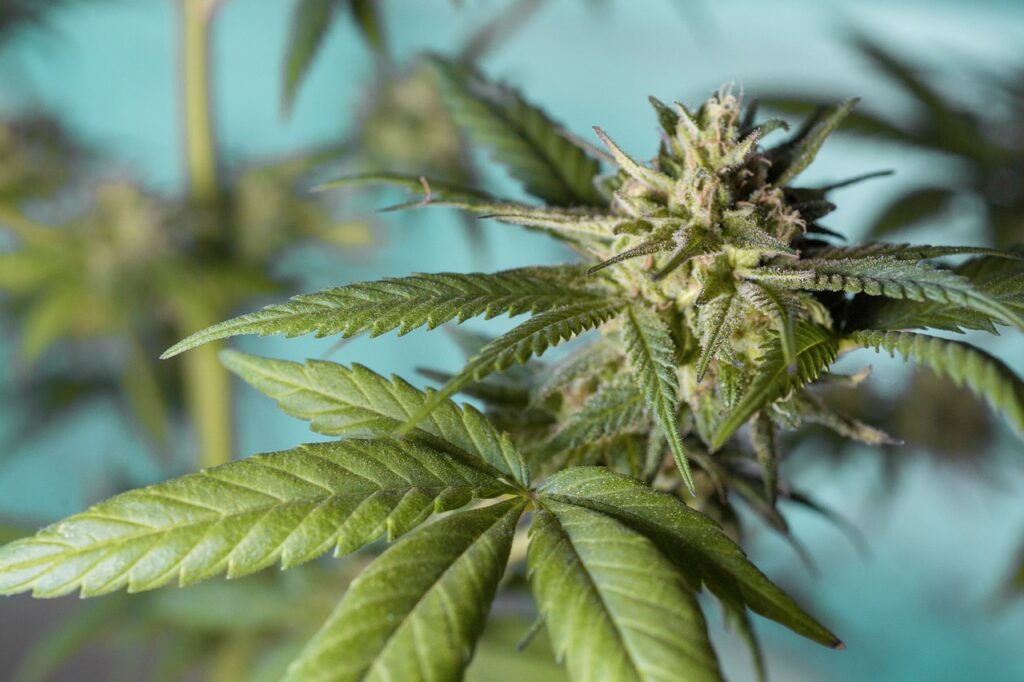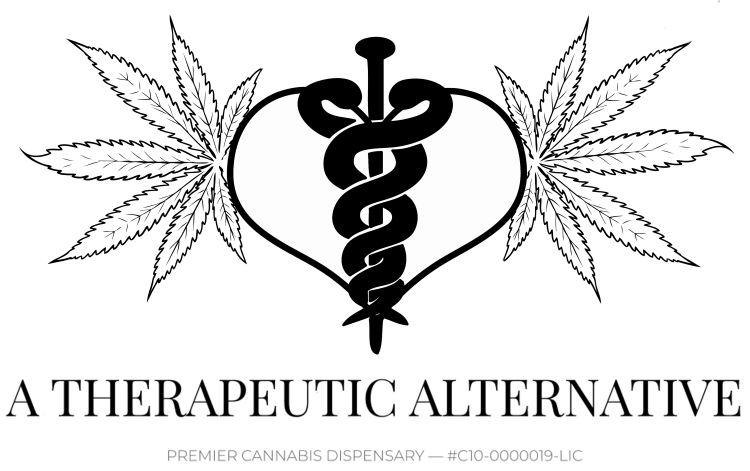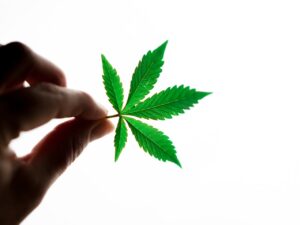Table of Contents
ToggleKey Takeaways
- Epsom salt, made of magnesium sulfate, is an old-time natural favorite for promoting relaxation and easing sore muscles. Epsom salt’s magnesium content can reduce inflammation and promote healing.
- CBD is a non-psychoactive compound that’s found in the cannabis plant. Whether this plays a role in stress relief and muscle recovery is dependent on how Epsom salt CBD interacts with the endocannabinoid system.
- Bringing together Epsom salt and CBD maxes out the potentially effective benefits. Together, they improve relaxation, minimize muscle soreness after exercise, and support overall fitness, particularly in baths or topical blends.
- They always stress the need to keep hydrated, the need to eat properly and sleep properly.
- Be conscious of safety by being aware of potential side effects. Seek medical advice when appropriate, and purchase CBD products from trusted suppliers that ensure quality and safety.
- Anecdotal evidence points to many of the synergistic benefits of both Epsom salt and CBD. Though we know much about how they interact, we still require more research to understand their long-term effects on stress relief and recovery.
Epsom salt is well known for its soothing high magnesium content. When you incorporate it into warm baths, it works wonders at relieving muscle tension and encouraging relaxation.
CBD is one of the most popular ingredients for calming skin, relaxing muscles, and supporting overall wellness, thanks to its miraculous hemp-derived properties. They join forces to develop a muscle relief bath soak.
This soak works to calm achy muscles, relieve stress, and improve recovery time post-workout. Though additional research is required to understand their synergistic effects, countless users vouch for their combined benefits.
Expert Opinions on Epsom Salt CBD
Epsom salt and CBD are ubiquitous buzzwords in stress relief and muscle recovery discussions. These two products are perfect examples of how to combine time-tested remedies with today’s wellness trends. Experts such as Dr. Rhonda Mattox suggest that Epsom salt is a wonderful, multipurpose solution to help with anxiety and targeted pain.
This is consistent with magnesium’s well-established role in regulating muscle and nerve function, according to the National Institutes of Health. Many people think that magnesium from an Epsom salt bath can be absorbed transdermally—through the skin. Scientific research into this subject is scant, despite numerous anecdotal reports.
How Experts Define Stress Relief
Experts say that when you feel stressed or anxious, your body can relax and your mind can feel calmer. Taking warm baths is a great way to help with this because the heat helps your blood flow and relaxes your muscles. If you add Epsom salt to your bath, it can make the relaxation even better, easing sore muscles and reducing tension.
CBD, known for its effects on the endocannabinoid system, has been shown to reduce the perception of stress. Epsom salt foot baths can provide deep, localized relief, making them particularly beneficial for those with arthritic feet.
Muscle Recovery: Expert Perspectives
Recovery experts highlight the 3 R’s of recovery—rest, rehydrate, and refuel. After a hard workout, the body’s demand for magnesium spikes, furthering the argument for using Epsom salt soaks. CBD’s anti-inflammatory properties can help restore sore muscles even more.
Experts endorse regular Epsom salt baths for serious pain relief. It’s important to supplement this strategy with stretching and targeted hydration to maximize its efficacy.
Experts on Combined Benefits
Experts have speculated that there is some kind of synergy between Epsom salt and CBD, with warm soaks through Epsom salt likely enhancing CBD’s calming effects. Although clinical research is lacking, this combination offers anecdotal evidence to promote muscle relaxation and expedite post-exercise recovery.
How Does Epsom Salt Aid Recovery?
Epsom salt, or magnesium sulfate, has long been a popular home remedy for muscle recovery and stress relief. Most of the proposed benefits are related to its magnesium content. Warm water delivers relaxing benefits too, which helps make this treatment a go-to for soothing soreness and tension.
Understanding How Magnesium is Absorbed
Magnesium is essential to muscle function. It is crucial for muscle contraction and relaxation by aiding nerve signaling and ATP production. When Epsom salt is mixed with water, the salt breaks down into magnesium and sulfate ions.
Though oral magnesium supplementation is well-researched, transdermal absorption through Epsom salt baths is still up for discussion. A 2016 study suggested magnesium can penetrate the skin’s outer layer, but the amount absorbed may vary based on skin type and soaking time.
This is important because adequate magnesium levels are fundamental to physical health. They modulate inflammation and promote tissue healing, giving powerful benefits to damaged muscular tissue from workouts.
Muscle Relaxation Mechanisms
Magnesium is thought to improve one’s relaxation response, which is why Epsom salt baths are often marketed as having a soothing effect. Magnesium aids in muscle relaxation through the regulation of calcium, keeping muscle cramping and stiffness at bay.
Warm water makes this effect even better by bringing more circulation to the area and relaxing your tight muscles. Together, these factors provide a fertile ground for recovery to take hold.
Relaxation techniques such as Epsom salt soaking naturally lower cortisol levels, promoting stress relief and leading to overall improved health.
Clinical Evidence for Epsom Salt
Although anecdotal evidence strongly suggests that Epsom salt baths can help reduce pain and swelling, clinical research is still lacking. Other studies—such as one involving lupus-related fatigue—indicate possible benefits, but further investigation is needed to prove its effectiveness.
Though Epsom salt doesn’t work for everyone, most users experience relief from soreness, swelling, and stress.
CBD’s Role in Stress and Recovery
CBD is recognized universally for its capacity to relieve stress and aid muscle recovery. This is in large part thanks to how it interacts with our body’s endocannabinoid system (ECS). The ECS, responsible for maintaining balance in various bodily functions, plays a key role in mood regulation, pain perception, and inflammation control.
CBD interacts with ECS receptors to potentially lower exaggerated stress responses and create a general feeling of calm, aiding the recovery process. Research showed that people taking a full-spectrum CBD product experienced a measurable reduction in stress. They communicated an average effectiveness score of 7.83 ± 2.023. This indicates that more comprehensive benefits can be enjoyed through the overall formulations of broad-spectrum products versus isolates.
Biochemical Contributions of CBD
As a modulator of these and several other neurotransmitters, most notably serotonin and dopamine, CBD is directly linked to mood and stress regulation. Through the modulation of these pathways, CBD can potentially provide relief from anxiety and psychological distress.
It further affects pain-inducing neurotransmitters, aiding in physical recovery as well. Studies show the different ways that CBD affects our central nervous system. It offers calming benefits that reduce anxiety and improve quality of life. These biochemical effects render CBD as a naturally derived, safe, and effective alternative.
Systemic vs. Topical CBD
Systemic CBD is oil or capsule-based. It works from the inside out to relieve everyday stress and support recovery and relaxation, circulating throughout the body and mind.
When you apply topical CBD, like creams or balms, to specific areas, it tends to work best in treating muscle soreness. While experts say systemic CBD can be an effective stress reliever, topical application is more appropriate for recovery after exercise. Sometimes the best answer just depends on individual needs.
CBD for Muscle Repair
Since muscle soreness and repair are largely mediated by inflammation, CBD’s anti-inflammatory properties could help mitigate this soreness and promote recovery after workouts. That’s not a coincidence.
Anecdotal evidence, along with many CBD users who say they’ve experienced CBD differences like inflammation and pain improvement. Professionals recommend using CBD immediately post-exercise to achieve the desired results.

Tips for Optimizing Benefits
When combined thoughtfully, Epsom salt and CBD can work together to deliver targeted pain relief and stress reduction. Like athletes, musicians can improve their physical recovery and mental well-being by developing a routine based on expert recommendations.
Here’s a quick guide to using them to maximum effect.
Dosage and Frequency Recommendations
Experts suggest dissolving 1 cup of Epsom salt in 1 quart of warm water. This special process allows for superior absorption of magnesium sulfate, helping sore muscles recover more quickly.
A dosage of 300 mg of CBD is most effective at reducing anxiety. Further, consuming 10 mg of CBD per kilogram of body weight may decrease post-exercise inflammatory responses.
Individualized dosages are important. Body weight, tolerance, and specific needs should dictate your dosage. There’s evidence that topical applications of 20 mg/day CBD provide effective localized pain relief with negligible side effects.
Don’t go beyond these suggestions to reduce the risk of harmful effects.
Best Application Practices
Enjoy an Epsom salt warm bath at 100°F – 104°F. By soaking for 15 to 20 minutes, your muscles have the chance to fully relax and absorb magnesium quickly and effectively.
Introducing CBD oil into your bathwater or rubbing it directly into sore spots helps you enjoy this relaxation, while accelerating recovery.
Or, CBD-infused lotions mixed with Epsom salt scrubs can work for targeted relief on sore muscles after a workout.
Morning, Workout, and Evening Routines
- Take 300 mg of CBD oil to manage stress.
- Use an Epsom salt bath to relieve soreness.
- Evening: Combine both for a soothing bedtime routine.
Safety and Regulatory Considerations
To get the best results for stress relief and muscle recovery, it’s important to know how safe Epsom salt and CBD are. We also need to think about the rules and regulations for using these products. Being aware of potential risks, what to avoid, and the legal aspects will help us use them safely and effectively.
Potential Side Effects
Epsom salt baths are generally safe, with minimal risk of side effects. However, consuming Epsom salt as part of extreme detox routines can be dangerous and may lead to serious health complications.
There is a risk that users will suffer serious diarrhea as a consequence. Bathing is not recommended for those with severe skin inflammation (e.g. Eczema), open wounds, infected skin, or burns, as these conditions can deteriorate.
Likewise, common side effects of CBD include fatigue, dry mouth, digestive changes, and increased appetite. Monitoring how your body reacts to both substances is critical, especially when using them together or for the first time.
Contraindications to Consider
Specific health conditions should be discussed, which could contraindicate Epsom salt and or CBD usage. For example, those with kidney issues or people taking certain medications should be careful.
When in doubt about possible drug interactions or other risks, always talk to your healthcare provider. Look for specific care instructions on the product specs for jetted or whirlpool tubs. This gives you confidence that Epsom salts are safe for your needs.
Navigating CBD Regulations
Although hemp-derived CBD is federally legal under the Agriculture Improvement Act of 2018 (P.L. 115-334), the majority of CBD products have been considered supplements.
They are free from FDA regulation, leading to important public health issues related to quality and safety. To avoid low-grade products, buy from high-quality sources that focus on truthful labeling and laboratory testing.
Research Gaps and Future Directions
Though Epsom salt and CBD climb the wellness trend charts, much research is needed to realize their true potential. Scientific literature is void of any strong evidence to validate their effectiveness or elucidate their mechanisms of action. Anecdotal claims abound about potential benefits, including stress relief and muscle recovery.
Studies like these aren’t able to fully isolate these substances and frequently don’t take into account varying dosages or the long-term effects. Research on CBD, particularly during the COVID-19 pandemic, has provided insight into its physiological, physical, and cognitive therapeutic effects. Yet, these findings are not exhaustive or definitive (Nichols and Kaplan, 2019). This creates a situation where consumers are forced to navigate a confusing landscape, relying more on their instinct than scientific consensus.
Areas for Further Study
One critical area for research is dosage. Variations in how Epsom salt and CBD are used, whether in baths, topicals, or oral supplements, make it challenging to determine optimal amounts for specific outcomes. In the same vein, long-term benefits and risks of stacking these substances is similarly unexamined.
Clinical studies that target the compounded effects may sharpen our understanding. Individual variability is another critical factor of outcomes. Factors including age, pre-existing health conditions, and lifestyle may play a role in determining how effective CBD is in relieving pain and improving sleep quality (Kasper et al., 1991; Burstein, 2015).
Evolving Expert Understanding
Being in a dynamic stage of study where professional opinions on these novel chemicals are constantly shifting is interesting. Keeping up on reputable research is essential, as many of these findings are proving to be in direct opposition to prior assertions. Consumers are encouraged to rely on trusted medical advice instead of generalized recommendations, given the variability in responses (Gamelin et al., 2017).
The Future of CBD and Epsom Salt
Looking ahead, innovations combining these ingredients could shape future wellness trends. Increasing acceptance of natural remedies marks a new era of incorporating holistic choices into traditional health routines.
Enhancing Wellness with Epsom Salt CBD
With maintenance of both physical and mental wellness in mind, epsom salt infused with CBD provides a more holistic approach to a person’s overall well-being. The warm water of a bath combined with the soothing properties of magnesium and CBD creates a calming environment that supports stress relief and muscle recovery.
Magnesium is an essential mineral known for its role in over 300 enzymatic processes. It’s essential for blood pressure, metabolism, and regulating blood sugar levels. In the meantime, CBD has gained major popularity for its anti-inflammatory and pain-relieving effects, as noted by industry experts like Dorinda O’Donnell.
Combined, these ingredients promote deeper relaxation and recovery, making them an ideal self-care companion to your wellness regimen.
Complementary Therapies
To maximize the benefits of Epsom salt and CBD, consider incorporating these complementary practices:
- Aid in relaxing tense muscles and increasing suppleness.
- Meditation and mindfulness: Reduce stress and promote mental clarity.
- Essential oils like lavender or eucalyptus can enhance the bath experience.
Lifestyle Integration Tips
As with any new product, consistency is key in order to achieve the most optimal results. Continue using Epsom salt CBD baths regularly, as needed, and most effectively after workouts and long, stressful days.
Oils and lotions with concentrations of 150 to 600 mg CBD per ounce are great for helping you relax from head to toe. Choose higher concentrations for targeted topical pain relief. As with any supplement, look for third-party-tested products to know they’re free from contaminants and precisely labeled.
Enhancing Overall Well-being
Self-care practices such as these, Ispree baths help to increase overall quality of life by calming the mind and aiding in recovery. Since magnesium increases serotonin—a key neurotransmitter that regulates mood—an Epsom salt CBD soak can help you maintain a peaceful mood inherently.
Conclusion
Epsom salt CBD is an exciting new solution to promote stress relief and muscle recovery. Epsom salt has long been known for its soothing qualities that induce relaxation. When combined with CBD, it becomes an experience that is easy and powerful. Experts are optimistic about this combination, but continued research will further our understanding and provide more clarity.
Incorporating Epsom salt CBD into your routine couldn’t be easier or more convenient. Whether you’re soaking after a long day or recovering from a tough workout, it’s one small and soothing step toward bettering body and mind. Read product labels, heed safety precautions, and select products that fit your specific needs and activities.
Frequently Asked Questions
What is Epsom Salt CBD?
You may have heard of the benefits of Epsom salts. How Epsom salt and CBD complement each other. The magnesium in Epsom salt relaxes tense muscles and reduces inflammation, while CBD lowers stress levels and fosters recovery. Combined, these two compounds may help with both physical and mental stress.
Does Epsom Salt CBD help with stress relief?
Experts say that CBD helps relieve stress by influencing the body’s endocannabinoid system. When you combine these effects with Epsom salt’s natural relaxing properties, it’s no wonder this combination promises a calming experience, whether used in a bath or topical treatment.
Can Epsom Salt CBD improve muscle recovery?
Epsom salt helps recovery by easing soreness and inflammation. Moreover, CBD’s anti-inflammatory properties could strengthen this effect, making it a go-to for post-workout routines or any kind of physical strain.
How do I use Epsom Salt CBD effectively?
Pour the suggested amount (typically 1-2 cups) into a warm bath. In order to fully reap the relaxing and muscle-soothing benefits, soak in Epsom salt for 20-30 minutes. For effective results, be sure to adhere to product instructions.
Is Epsom Salt CBD safe to use?
The vast majority of these products are perfectly safe when used as directed. Check with your doctor if you are pregnant, nursing, or have any skin sensitivities. Look for CBD that is third-party tested for quality.
What should I look for in Epsom Salt CBD products?
Look for products that are clearly labeled, third-party lab tested, and made with natural ingredients. With any CBD product, look for trusted brands to ensure potency, purity, and efficacy.
Are there research gaps in Epsom Salt CBD’s effectiveness?
While anecdotal evidence has alluded to its positive effects, additional scientific studies are necessary. While the research behind CBD and magnesium is promising, it’s still in the early stages.
Looking For A Cannabis Dispensary You Can Trust?
For over a decade, we’ve been championing the rights of medical cannabis patients and redefining what it means to inspire wellness. At A Therapeutic Alternative, we’re not just about offering premium cannabis products but about creating a community where health, knowledge, and compassion thrive.
Located in the heart of Midtown Sacramento’s medical district, our dispensary is more than a place to shop—it’s a hub for empowerment and education. Whether you’re a seasoned cannabis enthusiast or exploring its benefits for the first time, our knowledgeable staff is here to guide you every step of the way.
We take pride in offering premium products, including top-notch Indica Vape Cartridges. Our accessibility-focused facilities, featuring an ADA lift and convenient parking options like a lot directly behind us and free street parking, make visiting us seamless. Our commitment to professionalism, compassion, and integrity sets us apart in the industry.
Ready to experience cannabis done differently? Join us at A Therapeutic Alternative and discover how holistic health can transform your life. Visit us today—your path to wellness starts here!




